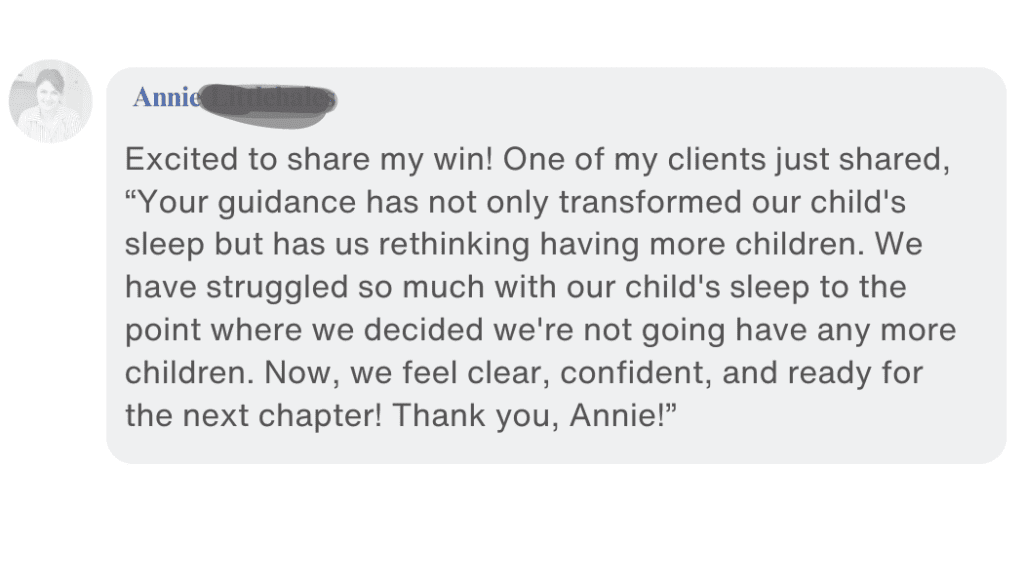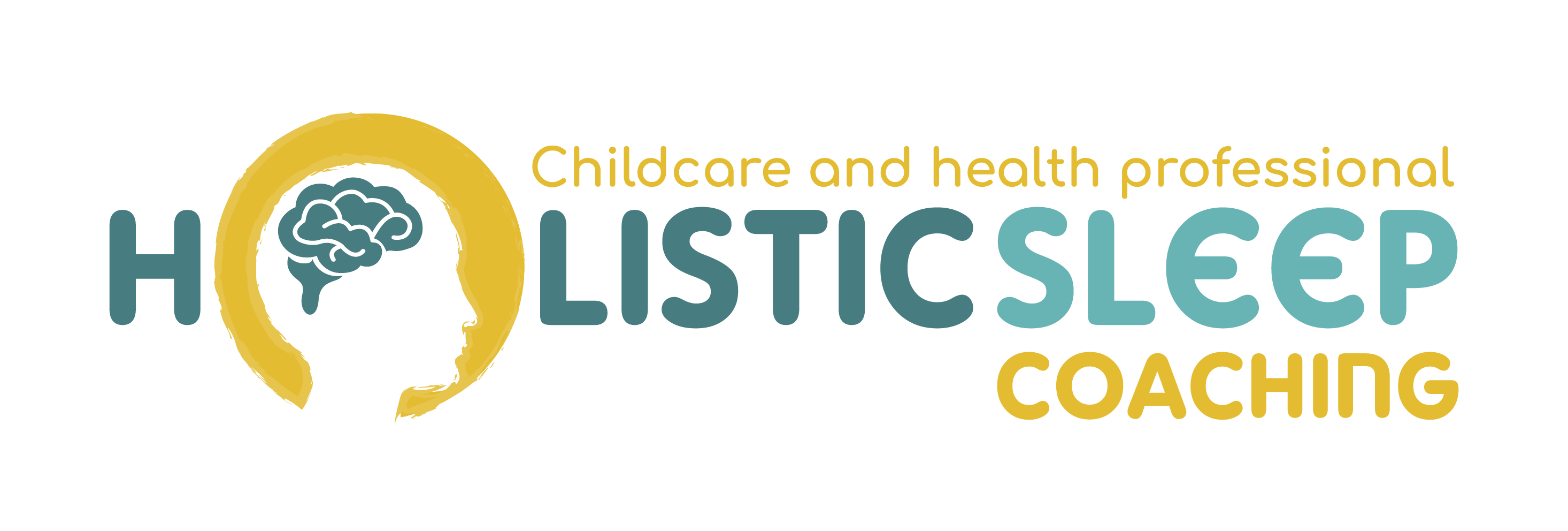In today’s post, I’m diving into the heart of what truly makes a difference in our work as sleep consultants: the importance of a family-centered approach to sleep assessment and support. Family-centered care is not just a method; it’s the gold standard for empowering families, a practice championed in pediatric settings for decades. As sleep consultants, embracing this approach allows us to honor the uniqueness of each family, tailoring strategies that not only achieve better success rates but also bolster parental confidence and self-efficacy. This is more than just about solving sleep issues; it’s about transforming lives and helping families thrive together.
By the end of this article, you’re going to know my approach and our strategy that addresses the entire family’s needs. This isn’t just about children sleeping through the night; it’s about empowering families to thrive together. And it’s this holistic method that has supported hundreds of our students within our sleep coaching program to get incredible results for their clients. They’ve become more than sleep consultants; they’ve become life changers. And today, you’re going to learn exactly how they do it.
If you prefer to watch the video, you can do so below.
Working as a Sleep Consultant: The Crucial Role of Family-Centered Care
I’m obsessed with family-centered care. It’s the cornerstone of how we operate in pediatrics, and as a public health and children’s nurse, I regularly write and speak about this concept. Why is it so important to me? And why should it be so important to you too?
Well, firstly because children only make sense in the context of the family and environment in which they are being raised. Family-centered care is known to be a more empowering and compassionate way of supporting children and parents through difficult times. It positions parents as the experts on their children and values shared decision-making, honouring the family’s culture and preferences, and prioritises collaboration.
And secondly, because it is never just about a child. It’s always a child and their important, special people. Children exist as part of a complex family ecosystem.
To give you a real-life example, Annie, one of our graduates shared this feedback recently that one of her clients had such a difficult experience with their first child that they had made the decision to not have any more children.

However, after working with Annie in a family-centered way to find sustainable sleep solutions that were responsive and respectful, they felt confident, empowered, and able to reassess. They’ve just shared the news that they’re expecting another baby.
When we successfully work with the whole family on all of the stressors that affect them and understand that sleep is both a symptom and a cause that needs a sensitive and nuanced approach. It’s never just about the child’s sleep – it’s the whole picture.
When we only look at the child, we miss the nuance of the relationships, attachment, and communication within the family, and the factors within their ecosystem that might be directly contributing to sleep.
Approaching sleep in a family-centred way allows us to approach the care of a family knowing which aspects of family life are directly or indirectly impacting sleep.
How parenting got derailed
We need to hand parents the tools to support themselves, rather than act as experts. Now, you might be wondering how that works, given that parents may well reach out to you, as the expert, for support. Well, we have to remember that parents didn’t always have so little confidence in their intuition that they needed to pay someone to help them.
There is a long and sometimes dubious history of parenting and sleep experts, with many people suggesting that they can fix problems. But most of the time, babies do not have any sleep pathology.
There is often a mismatch between cultural norms, societal expectations, and historical values that are not based on accurate, evidence-based information about sleep. The Industrial Revolution sparked a new wave of social pressure to get into the workplace and be productive.
Childcare became something that even normal folks needed, rather than just the uber-wealthy. With the Industrial Revolution came the influx of medical professionals who sought to make parenting more scientific and less instinctive.
They wanted to create rules and restrictions to make the process of feeding, caring, and parenting more objective and measurable.
Of course, we now know that most of this theory is not evidence-based, but we are still clawing our way back from nearly 200 years of strict schedule-based care and a non-responsive style of parenting.
Even when parenting instinct is alive and well, it sometimes feels like swimming against the current, in a sea where everyone else is reading books, blogs, and Instagram posts about routines, schedules, ‘drowsy but awake’, strict wake windows, and non-cue-based care.
Our instinct then, becomes at odds with the social norms. When this happens, we can begin to feel like everything we feel cannot be trusted, and that we are better off listening to experts. In this way, the balance of knowledge and power has shifted from within families, communities, and individuals, to unknown so-called experts and medical professionals.
It’s hard to trust your instinct when nobody else around you is. Perhaps our real win is when we enable parents to be their own experts, handing the power back to the people who should never have had it taken from them in the first place.
Giving parents back their confidence through family-centred care
My approach to the practical implementation of family-centered care is based on decades of work in attachment theory, as well as the work of Urie Bronfenbrenner who proposed an ecological systems model with the child at the center, and in progressive concentric circles, considering the influence and importance of the extended family, community, culture, and wider influences such as political and societal contexts.
The ecological model was originally proposed to explain the multiple, and parallel influences on a child’s development (Bronfenbrenner, 1979; 1986).
The model starts with the immediate context of their child – for example, their parents, home, and siblings and moves outward to consider all the other factors such as their community, school or nursery, childcare, and environments – all the people, places, and activities that affect the developing child.
Within this framework, sleep can be considered synergistically within the other interactions and influences of the family, community, and society. If you try to tackle sleep challenges without considering not only what the child has going on in their life, but also what the parents have going on in their life, then you may set families up to fail.
“Family centred sleep work means that all the influences on a child should be considered when co-creating plans with families.”
This is because only parents know the full picture. Only parents are the real experts on their children.
Working in a way that acknowledges all of life’s complexity and parallel contexts means we don’t set parents up to fail by choosing an approach that fundamentally won’t work given all the other factors and influences in their lives.
In this way, we give parents back their confidence by allowing them to be fully part of the planning and decision-making, developing a plan that has the best chance of success.
What family-centered care looks like in practice
So by now, you’re probably wondering what family-centered care looks like. Maybe it sounds nice in theory but how do you actually implement it?
Well, I’ve already hinted at a big part of what it means to work in a family-centered way, and that’s to ask parents about their current strengths and challenges, their unique struggles, social supports, any available resources, or extra help. It’s no good making a plan that assumes an uncomplicated life and plenty of family support if that simply isn’t the case. So a family-centered sleep assessment also considers the context of support, current challenges, and unique setup.
The second big part of a family-centered approach to sleep is to work collaboratively with parents. As the expert on their child, they are in the best position to know what strategies stand the best chance of success.
While sometimes parents need some encouragement and confidence-boosting, choosing to put them in the driving seat means that ultimately, the decision about the approach, unique steps to take, exactly what changes need making, and how fast or slow to go, are up to them.
So, today I’ve written about the importance of a family-centered approach to sleep assessment and support. Family-centered care is known to be the best and most empowering way to support families and has been promoted in the pediatric setting for decades. Through this approach, we encourage sleep coaches to consider the uniqueness of each family, enabling them to choose strategies that not only have a better success rate but also promote parental confidence and self-efficacy.
If you are interested in supporting families in a way that is family-centered, responsive, and evidence-based, then we would love to hear from you. The first step is to book a call with one of us and see if we are a good fit.

